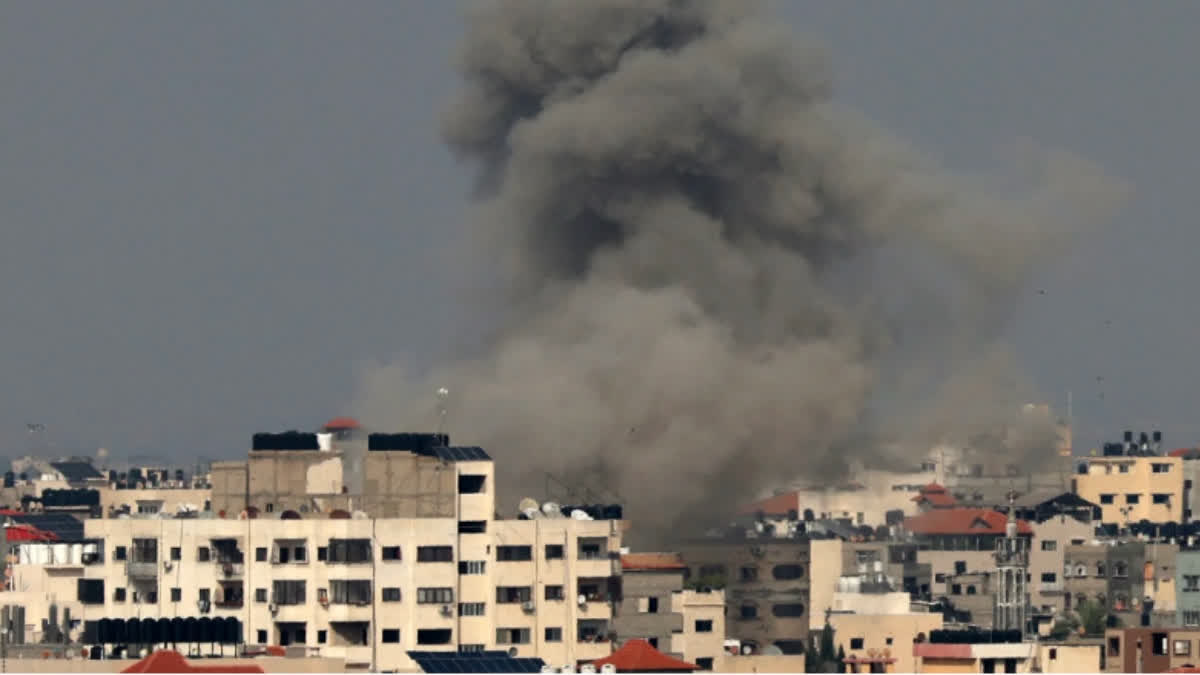New Delhi: A day after Hamas carried out the deadly attacks on Israel on October 7, called the Palestinian Islamic Jihad (PIJ) claimed that it was holding more than 30 Israelis hostage. Ziad al-Nakhala, leader of the PIJ, said that the hostages will not be repatriated till all Palestinians being held in Israeli jails are released. The PIJ also claimed responsibility for an operation in southern Lebanon against Israeli soldiers on October 9.
“We declare our responsibility for the operation that was carried out this afternoon in southern Lebanon on the border with occupied Palestine, which led to injuries among Israeli soldiers,” the Al-Quds Brigades, the military wing of the PIJ, said in a statement. So, what is PIJ and how is it different from Hamas?
The PIJ was formally established in Gaza in 1981 by two Palestinian activists Dr Fathi abd al-Aziz Shaqaqi, a Rafah-based physician, and Shaykh Abd al-Aziz Awda, an Islamic preacher from the Jabaliyya refugee camp in Gaza. Based in Egypt, Shaqaqi and Awda were originally members of the Muslim Brotherhood. Their views on the destruction of Israel led them in 1979 to establish the Islamic Jihad-Shaqaqi Faction, a branch of the Egyptian Islamic Jihad and conducted operations out of Egypt. The Shaqaqi faction was expelled from Egypt in 1981 following the assassination of Egypt’s President Anwar Sadat by the Egyptian Islamic Jihad. Shaqaqi and Awda returned to Gaza where they formally established PIJ from where it continues its operations till today.
Hamas, on the other hand, was founded in 1987 during the First Intifada (Palestinian uprising) in the Gaza Strip and West Bank. It has its origins in the Palestinian territories and was formed as a response to the Israeli occupation. The PIJ is primarily an Islamist organisation with a strong ideological connection to the Iranian government. It follows a strict interpretation of Islam and is more focused on the armed struggle against Israel.
While Hamas is also an Islamist organisation, it has a broader social and political agenda. It combines political activism, social services and military activities. Hamas’s charter calls for the establishment of an Islamic state in historic Palestine, but it has shown some flexibility in its approach and has participated in Palestinian elections.
Also read:Day 9 of Israel-Hamas war: Rafah crossing remains closed; Blinken meets Saudi crown prince
Since 2000, PIJ has conducted several attacks against Israeli targets (including suicide bombings), killing scores of Israelis. PIJ militants in Gaza sometimes take the lead in firing rockets into Israel – perhaps to pressure Hamas into matching its hardline tactics or to demonstrate its credentials as a resistance movement to domestic audiences and external supporters.
For three days in early August 2022, Israel and PIJ militants in Gaza exchanged fire. Hamas stayed out of the violence, with some sources intimating that Israeli measures of loosening access restrictions on goods and permitting thousands of Gazans to work in Israel may have provided Hamas with economic incentives not to fight. A similar round of violence between Israel and PIJ (with Hamas abstaining) took place in November 2019.
“The PIJ aims to annihilate Israel,” Abhinav Pandya, director, founder and CEO of Usanas Foundation, a geopolitics and security affairs think tank, told ETV Bharat. “Unlike the Palestinian Authority that is in power in the West Bank, the PIJ does not believe in a two-state solution.” Pandya compared the PIJ and Hamas with the Pakistan-based terror outfits Lashkar-e-Taiba (LeT) and Jaish-e-Mohammed (JeM).
“Like the LeT and JeM, the PIJ and Hamas have the same objective with slightly different ideologies,” he said. “Hamas is a bigger organisation and has formed the government in Gaza. The PIJ is a smaller organisation and is not in government.” The PIJ primarily employs small arms and mortar and rocket attacks from the Gaza Strip against Israeli targets in Israel and the West Bank. It also has man-portable air defence systems, mortars, armed unmanned aircraft systems, antitank-guided missiles and IEDs. Most estimates put the number of PIJ members at around 1,000. With Israel ordering civilians in north Gaza to evacuate to south Gaza ahead of a planned ground offensive, Pandya said that it will be difficult for the Israeli forces to carry out urban warfare in a densely populated area.
“The Israelis don’t have much knowledge about the complex underground tunnels that both Hamas and the PIJ use,” he said. “The PIJ may be smaller compared to Hamas, but it remains a potent force. It will be a part of the resistance from Gaza.” Days before the October 7 Hamas attacks, the PIJ held a military manoeuvre and parade in the Gaza Strip on October 3 to mark the 36th anniversary of the organisation's founding.
